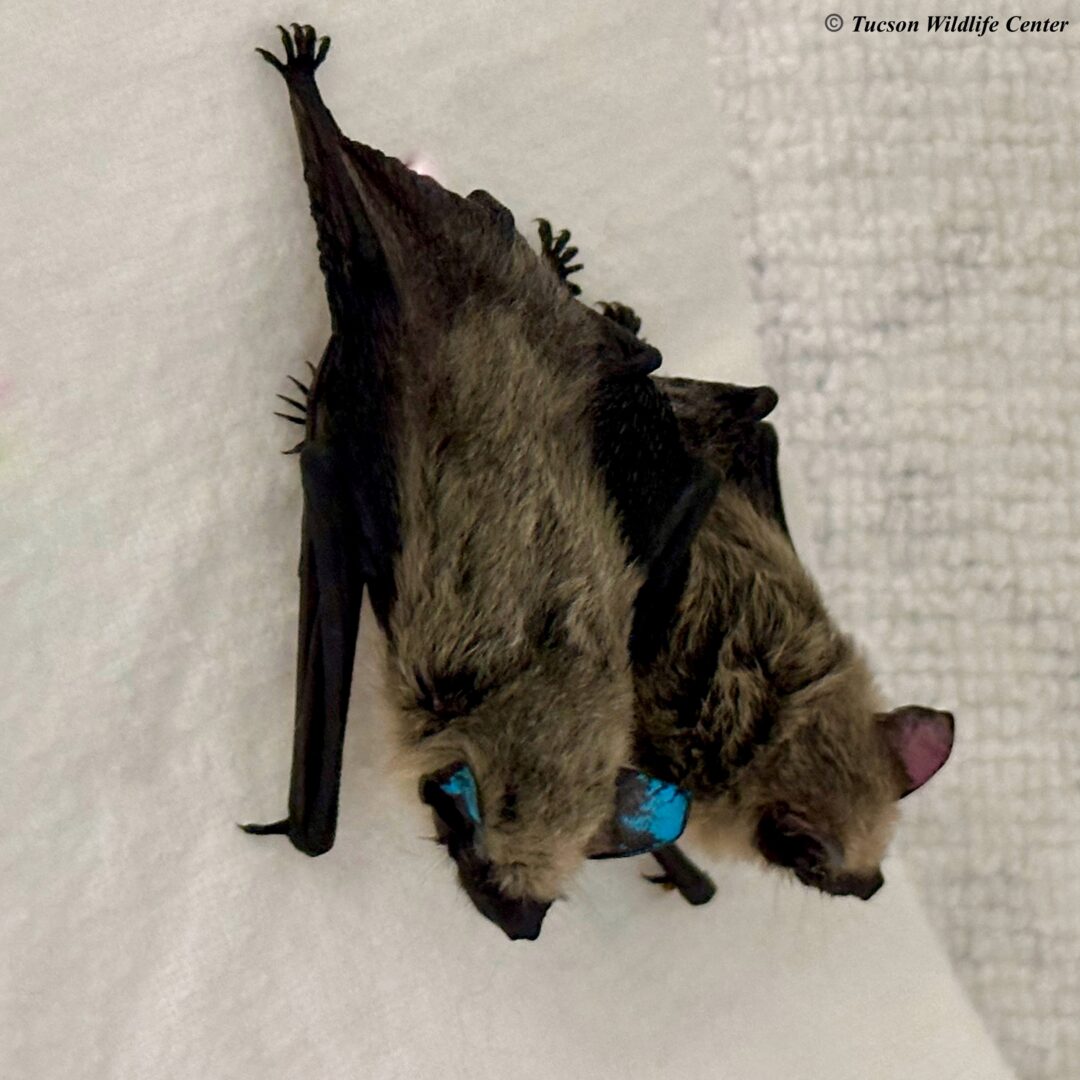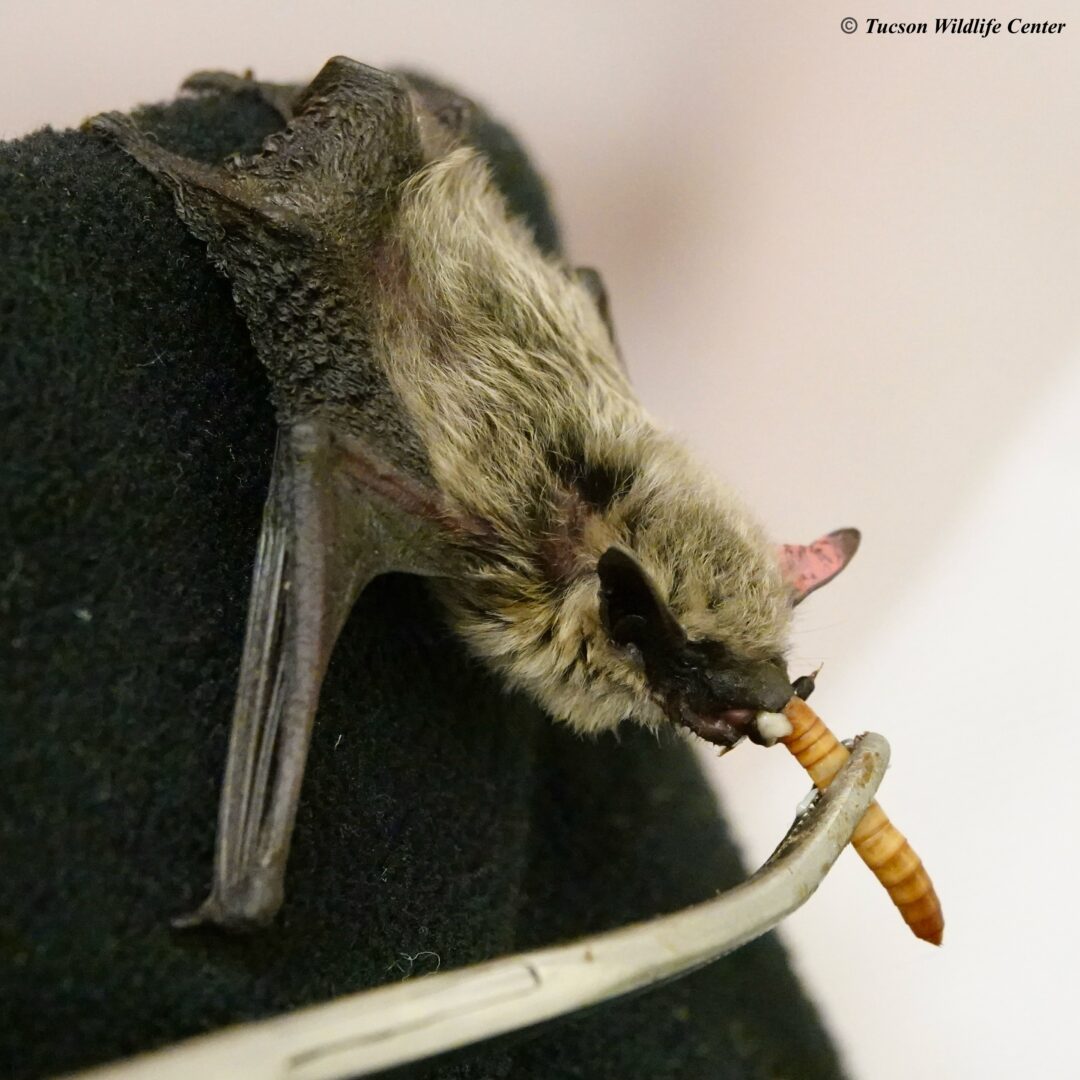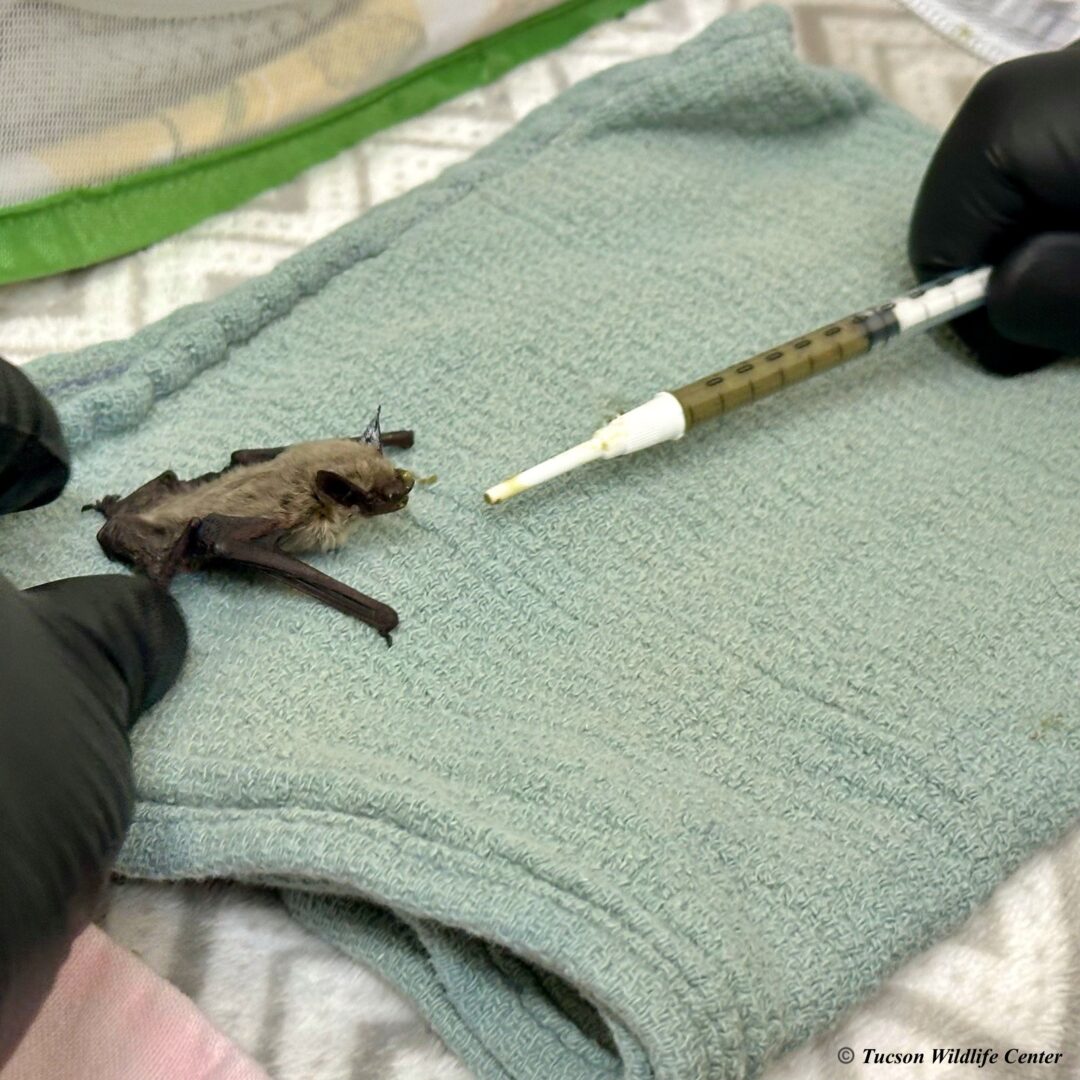
Orphaned Bat Pups
Extreme heat and sudden monsoon winds have led to a rise in orphaned and displaced baby bats being admitted to Tucson Wildlife Center. Western Pipistrelle Bats (aka Canyon Bats), the smallest bats in the United States, require highly specialized care when orphaned.
Neonates are born hairless and helpless, needing to be fed every two hours. Their formula is offered either by syringe or a tiny makeup sponge, which allows them to lap up just a drop at a time. Once their teeth begin to come in, the weaning process starts with a soft mush made from ingredients like fruit, egg white protein, spirulina, and other nutrients. As they grow, they transition to mealworms.
With such frequent feedings comes a lot of laundry—clean, dry bedding is essential to prevent skin issues and infections. They also require supplemental warmth until they can regulate their own body temperature. As they develop, these young bats are given space to climb, hang, and eventually practice flight. Before release, they must be able to fly confidently, hunt insects, and reach close to adult weight—about 4 to 6 grams. Once they can self-feed and navigate a flight enclosure, they will be ready to return to the wild.
Fun facts: Unlike many other bat species that raise their young in large colonies in the wild, Western Pipistrelle Bats form much smaller maternity groups—often just 5 to 12 mothers roosting together with their pups. And, like other insectivorous bats, these bats are capable of eating hundreds of small insects per night—making them excellent for natural pest control.
If you would like to help patients like these Pipistrelle Bat pups skunk kits, click this link to donate,
Another way you can contribute is to visit our “wish list” on Amazon or Chewy below:
We appreciate it, as will all the wild animals in our care!



Show your support with a minimum $25 donation and we’ll send you a “KEEP TUCSON WILD” sticker. Click the bumper sticker to donate.

